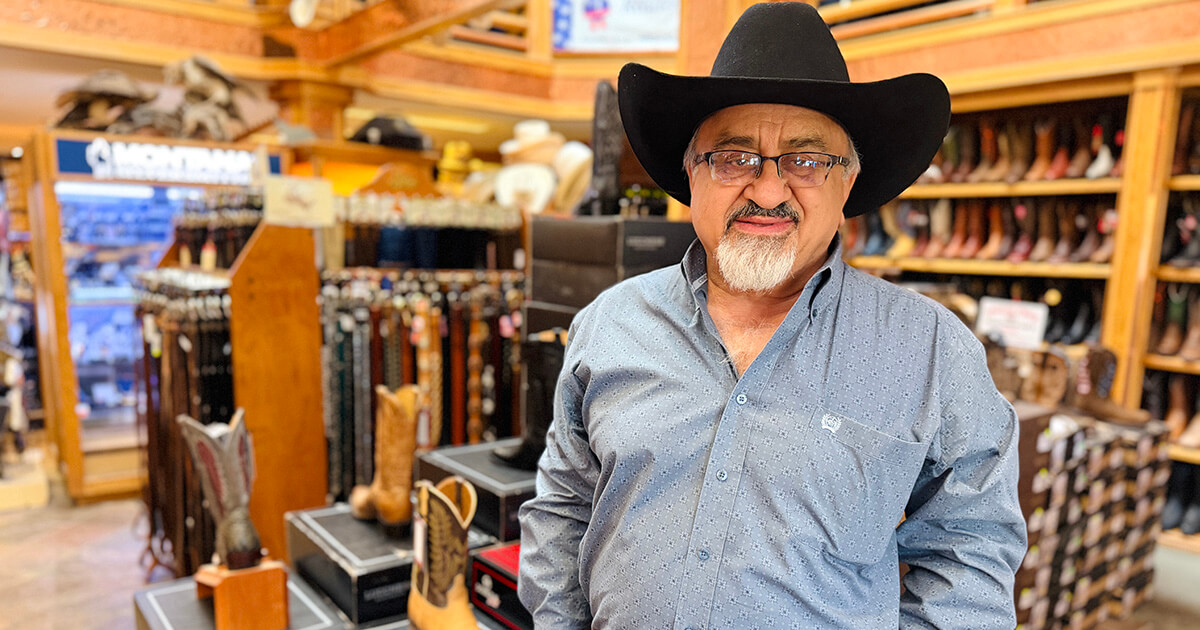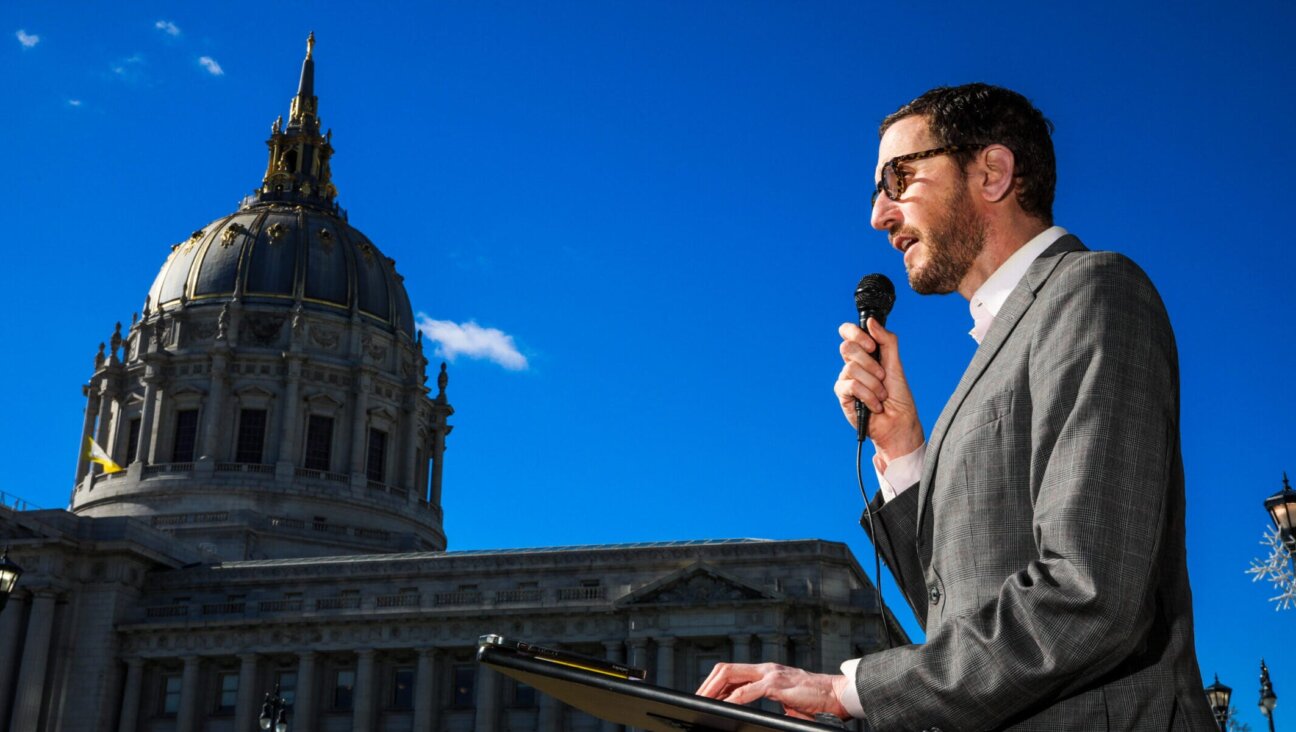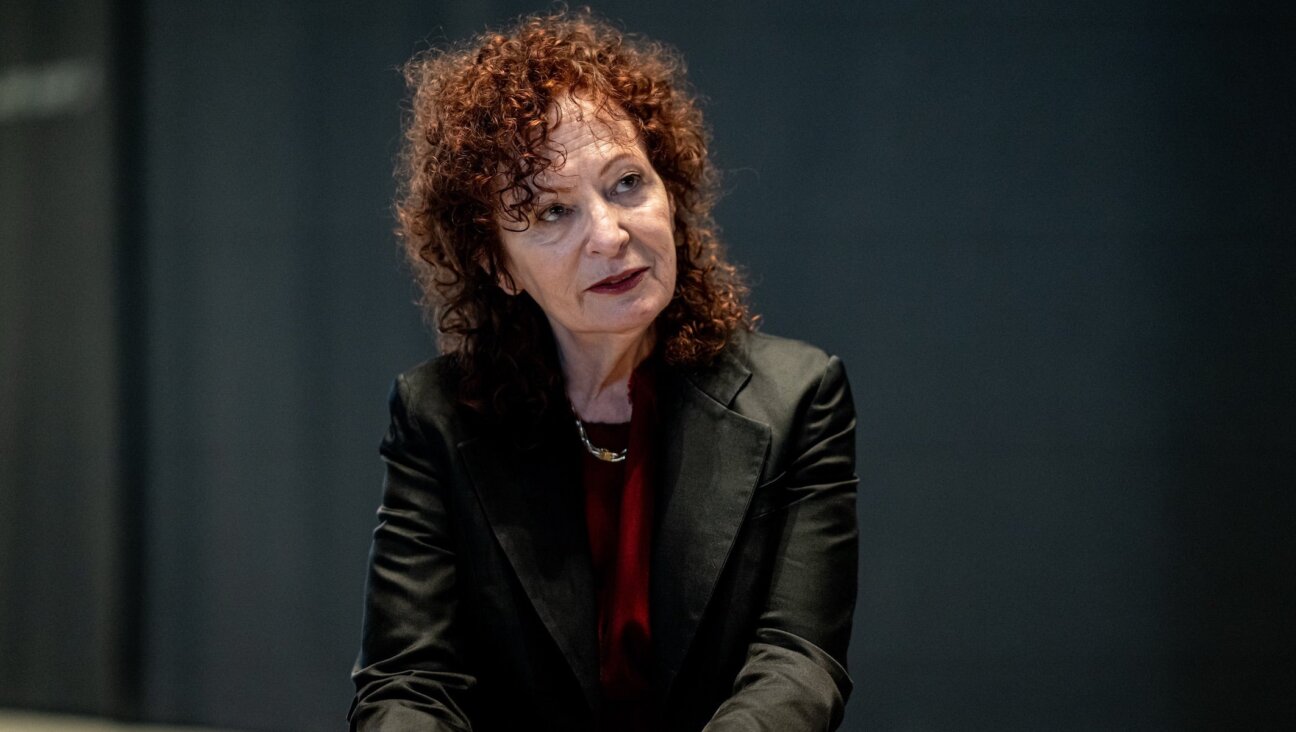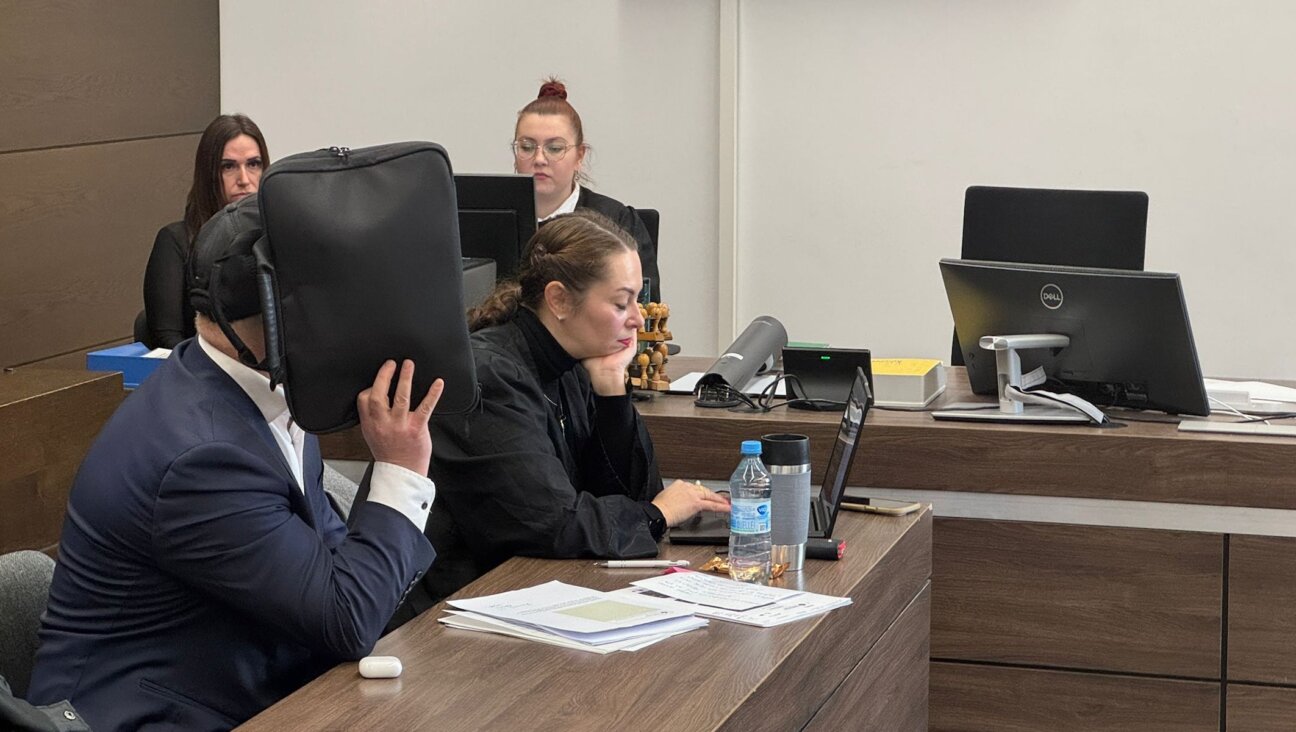GELT COMPLEX: Studies Suggest Possibilities for Engaging the Intermarried, Online Rally Draws Jews from Around the Globe, UJC May Face Budget Cut, Knesset Members To Meet With Mainline Protestants
Studies Suggest Possibilities for Engaging the Intermarried
Three new studies about interfaith marriage have been released in recent weeks, all supporting the increasingly common notion that intermarriage isn’t necessarily fatal to Jewish continuity.
Taken together, the three studies suggest that a combination of Jewish education, outreach and sensitivity can bring interfaith couples and their children into Jewish life. The release of these studies, in a short period of time, testifies to the ongoing level of attention that the Jewish community has given the issue of interfaith marriages.
The most statistically rich study was a follow-up to a much-discussed 2006 report, which found that 60% of interfaith couples in Boston were raising their children as Jews. The new, extended version of that study examined levels of Jewish attachment among the original cohort of families. It was conducted by the Combined Jewish Philanthropies of Greater Boston, a longtime supporter of outreach to intermarried couples.
The Boston study found that children of interfaith couples often observed the Sabbath and other Jewish holidays at rates comparable to, or even exceeding, children from Reform and Conservative households with two Jewish parents. It also found, however, that intermarried families are less likely to join synagogues and other Jewish organizations.
Another study by Arnold Dashefsky, a senior scholar at the National Center for Jewish Policy Studies at Hebrew College, found that there was a statistical correlation between having a rabbi officiate at an interfaith wedding and a variety of Jewish behaviors, including raising Jewish children. Though the study emphasized that there was no proof of cause and effect, it did suggest that a number of couples were turned off by the icy reception they received from a number of rabbis when they made inquiries about marriage ceremonies.
Finally, a study of Reform Jews by the Steinhardt Social Research Institute found that while intermarried and in-married households in the Reform movement often had similar rates of Jewish attachment, the highest rates of attachment, according to many measures, were found in households where the non-Jewish spouse had converted to Judaism.
— Anthony Weiss
Online Rally Draws Jews from Around the Globe
It’s hard to get a people spread out in a global Diaspora to meet up for a rally, but it becomes a little easier when that rally is held online.
On March 20, visitors to a Web site called Together4Israel.org were able to view a lineup of speakers who gathered electronically to give support to Sderot, the Israeli town that has been the target of steady rocket attacks from Gaza.
Among the big names to speak were Alan Dershowitz, from Sderot; Orthodox pop star Matisyahu, from New York, and actor Jon Voight, from Los Angeles. All of them were broadcast on the site’s live video feed.
Dershowitz, the first major figure to speak, called the residents of Sderot heroes in the vein of “the Jews of Shushan who defeated Haman” and “the men and women who stood bravely in London resisting the Nazi air war.”
The event was not without technical glitches, as time gaps between speakers across the globe stretched into several-minute delays. When that happened, the organizers ran prerecorded segments, including clips from the three major United States presidential hopefuls expressing their solidarity with Sderot.
Together4Israel.org, which invited viewers to “join one million in the largest ever online rally in solidarity with the victims of terror in Sderot,” received a total of about 60,000 hits from participants in more than 20 countries during the rally, according to the event’s organizers.
“We planned it very carefully so that it wouldn’t be in the middle of the night for anyone,” said Ariel Kotler, executive director of the One Family Fund, an organization that serves victims of terror attacks in Israel.
— Marissa Brostoff
UJC May Face Budget Cut
United Jewish Communities, the umbrella organization for North American federations, may be facing budget cuts.
The possible move comes after UJC leaders reached an agreement last week with the heads of large city federations to reduce the dues those federations will pay to support the group’s national budget.
According to sources that attended last week’s meeting, the sides agreed to reduce dues by about 7%. The meeting was advisory and attendees emphasized that the group had no formal decision-making powers. However, the large city federations wield considerable clout.
The agreement will go as a recommendation to UJC’s budget committee, which will make the final decisions on budgetary matters.
“Given the economic challenges that face many federations and communities, there was… an agreement to modestly reduce the dues for the coming year, but UJC is empowered to seek other revenue streams and other ways to maintain, if not grow, its budget,” said John Ruskay, executive vice president and CEO of the UJA-Federation of Greater New York.
However, another executive who attended the meeting told the Forward that it was dissatisfaction with what UJC had accomplished, given the size of its budget, that had forced the cuts.
Though UJC recently helped oversee a record annual campaign of $900 million last year, it has also faced rebellion by local federations over the issue of the dues that fund its activities. Recently, UJC has faced off with both the Jewish Federation of Metropolitan Detroit and the Jewish Federation of South Palm Beach County over disputes about dues, and the organization had warned Detroit that it could face expulsion from the national system.
If UJC is unable to find other sources of funding, the dues reduction would mean a reduction in its budget to about $37 million. The budget had gone up last year by 3.2%, to $40.2 million.
When reached by phone, Joe Kanfer, UJC’s chairman, declined to comment.
— Anthony Weiss
Knesset Members To Meet With Mainline Protestants
In the wake of recent strains between Jewish leaders and the leaders of America’s mainline Protestant churches, the Board of Rabbis of Southern California is convening a luncheon with top interfaith leaders and three Israeli Knesset members.
Key representatives of The United Methodist Church, which has opened discussions calling for Israeli divestment in advance of the church’s April parley, are expected at the March 28 event, along with Presbyterian, Mormon and Roman Catholic leaders.
The luncheon will be held at the Jewish Federation of Greater Los Angeles. It is seen as an avenue to give non-Jewish religious leaders an opportunity to interact with Knesset members, said Rabbi Mark Diamond, executive vice president of the Board of Rabbis of Southern California. The Israeli politicians at the event include the only Arab Christian Knesset member, Nadia Hilou, as well as Shlomo Molla, the only Ethiopian member, and Sephardic Kadima party member Yoel Hasson.
Diamond, who in January led an interfaith delegation to Israel and to the Vatican, said that he is often surprised at how different Jewish leaders’ trips to Israel are from those of their Christian counterparts.
“On our trips to Israel, we meet with Israeli government officials and Israeli journalists,” Diamond said, “whereas our Christian friends usually come to the ‘Holy Land,’ stay in East Jerusalem and meet with their Palestinian friends.”
Diamond also said that he and Bishop Mary Ann Swenson, the presiding bishop of the California-Pacific Conference of the Methodist Church, recently convened a meeting of top Methodist and Jewish leaders in Southern California to discuss the divestment issue.
— Rebecca Spence
















